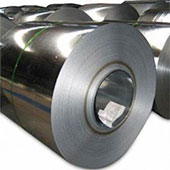Design Course
Sheet Metal
Fabrication Technology in Product Design
by
The success of the completed design depends on the selection of appropriate concept alternatives. A mismatch between customer’s needs, product, and the process cause loss of quality, delays, and added costs. Changes made early in the design process are less costly than those made during detailed design and later stages. Unattended design defects in conceptual design are expensive to correct in the detailed design stage. Therefore design alternates at the conceptual stage are important.
Example 1
Weighing Scale alternatedesign concepts built around the primary component which is the loadcell
Example 2
Medical Carts ( Wellness, Bangalore)
It is always good to have alternate ideas using different fabrication and joining techniques. Ultimately it is the user acceptance and the end price of the product that matters. In this example of medical carts, exploration of ideas results in a better-suited design for sheet metal as shown on the right without changing the inner component layout.
There is always more than one way of doing things. Each of these ways must be studied to decide on the most optimal and cost-effective way of realizing the product. It must be remembered that the apparent least complex path need not necessarily be the most desired path.
- Introduction
- Overview of Sheet Metals
- Manufacturing Process
- Sheet Metal Joinery
- Sheet Metal Assembly
- Sheet Metal Finishes
- Design Methodology
- The Design Process
- Design Brief
- Preliminary Design
- Design Alternatives
- Raw Materials
- Manufacturing Methods
- 3D Printing
- Human Factors
- Aesthetic Considerations
- Working Drawings
- Prototype
- Design Refinement
- Detailing
- Evaluation
- Engineering Documentation
- CAD / CAM Computer-aided Design and Manufacturing
- Production
- Finishes
- Scrap
- Downloads
- Contact Details
- Credits






